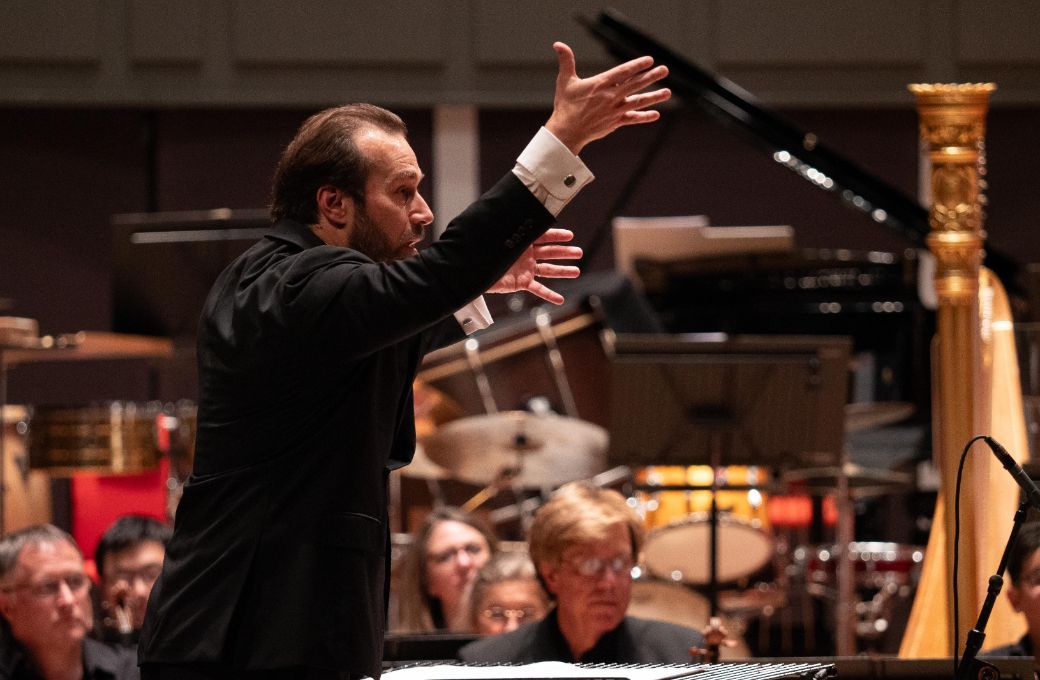In theory, it probably made sense for the City of Birmingham Symphony Orchestra to include the Percussion Concerto by film composer Danny Elfman in Thursday night’s concert. After all, the rest of the concert was a delirious celebration of music drawing on stage and screen. Energetically conducted by Fabien Gabel (who seemed to have gone out of his way to embody the concept of suave), they’d hit the ground running in the overture to Bernstein’s Candide, demonstrating a wonderful combination of precision and passion that would come to typify the evening overall. The work’s abrupt stylistic shifts were beautifully negotiated, from brash and motoric to gentle and warm – the very definition of a perfect concert opener.

Then came the Elfman. Where were the ideas? Where was the lyrical sensibility? Where were the dramatic twists and turns? Where, in short, was the music? Perhaps it was unreasonable to expect anything other than something fundamentally filmic, more about surface, momentum and effect than anything deeper or memorable. The fast outer movements were modestly cheerful at times, but were so locked into their respective pulses that no real playfulness was possible, too often sagging into mere activity and dull monotony. The second movement (D.S.C.H.) briefly mucked about with Shostakovich’s famous motif and hints of his sarcastic jaunt before apparently forgetting all about them. Only in the opening of the third movement (Down) did Elfman aspire to something less generic, in an episode of poignant string focus, though this, inevitably, ended up creeping away from authenticity back to mere atmosphere. Did Colin Currie play well? He must have done. He always looked busy, never sounded wrong, and was clearly challenged by the quantity of material.
Quality of material returned in abundance in the second half, first in the form of Robert Russell Bennett’s breathless 1940s arrangement of music from Kurt Weill’s musical Lady in the Dark. The players instantly locked back into the mode they’d displayed in Candide, dancing through its evolutions of style such that they became seamless, leaning into the work’s increasingly overt nocturnal qualities. The CBSO has rarely sounded so completely lovely, Gabel eliciting from them the most staggeringly rich, sumptuous sound, before wildly casting this aside as the music shifted sideways into various forms of boisterous romp. This was all delivered with stunning clarity: sweeping strings, winds running through them like liquid, the brass sharply muted above and warmly supportive below. It was genuinely breathtaking.
In many concerts, such brilliance as shown in the Weill would have been impossible to beat. Yet in hindsight it was merely an extended warm-up for what was to follow in Bernstein’s Symphonic Dances from West Side Story. Far from being a sectional compilation of the musical, Gabel and the CBSO rendered this a fluid whistle-stop tour through the narrative that proved utterly engrossing. Here, again, were the passion and precision in full swing, tilting between full-bodied lyricism, elegant delicacy with a real lightness of touch, and exhilarating plunges into violent mayhem. These latter sequences conveyed palpable drama and real emotional heft, Gabel initially teasing out a tone of caution within the brisk pace, growing into potent tension and danger as the music escalated. The tuttis here were utterly thrilling, a veritable showcase for the CBSO in demonstrating just how vivid and vital they can be. Barrelling along with such unstoppable momentum only made the work’s final twist sound all the more stark, falling into string stillness, its final vestiges of melody filled with dark uncertainty.


